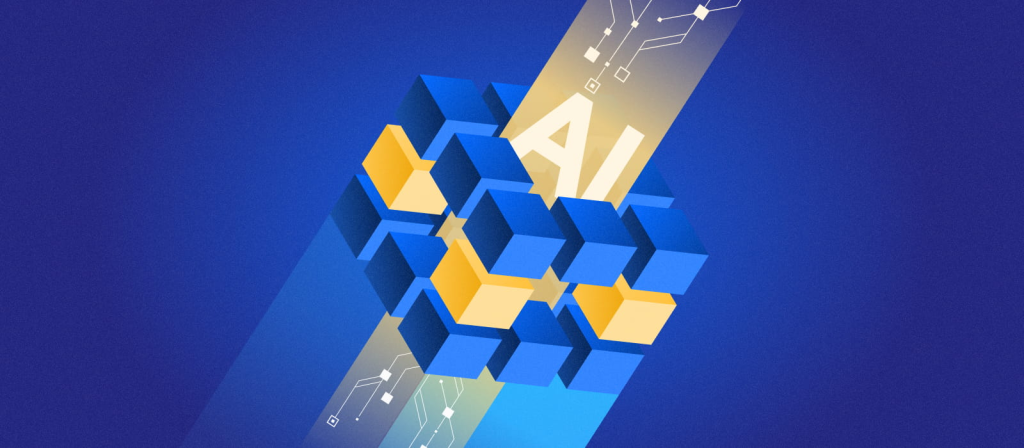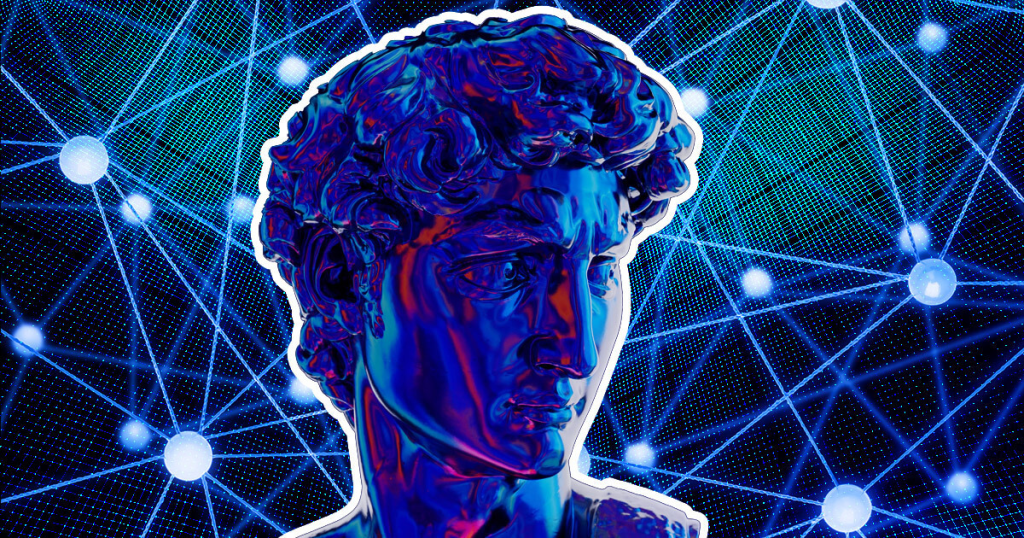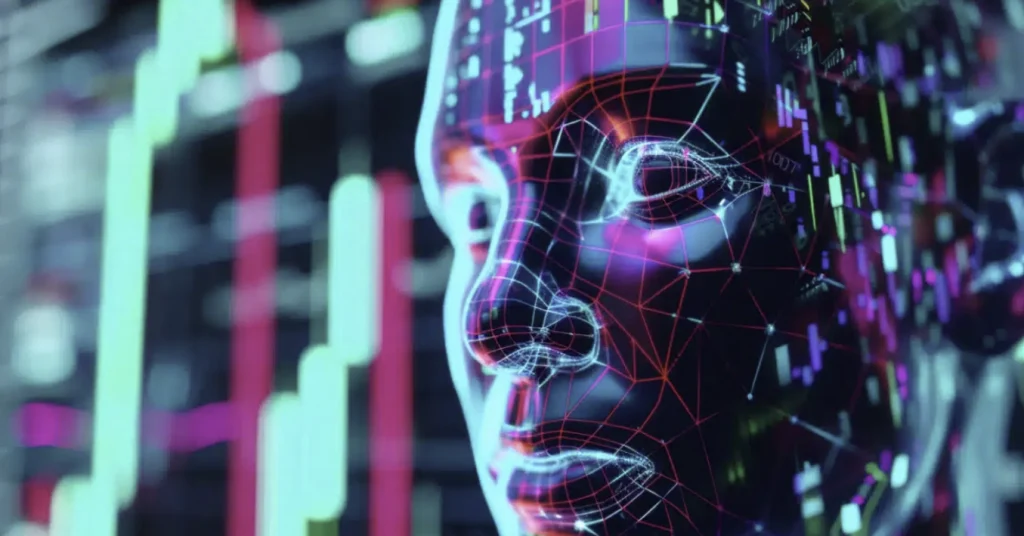Best AI Use cases for Crypto: Revolutionary Applications & Trends
AI is revolutionizing the crypto market by optimizing trades, boosting security, and automating complex tasks. In this article, we’ll explore the best AI usecases for crypto, covering areas like AI trading bots and DeFi optimization. See how AI is transforming the way we trade, manage portfolios, and secure assets in the cryptocurrency world.
Key Takeaways
- AI trading bots enhance cryptocurrency trading by automating processes, analyzing data quickly, and reducing human error.
- AI significantly improves DeFi operations through risk management, automated transactions, and yield optimization, creating more efficient financial ecosystems.
- The integration of AI with blockchain technology enhances security measures, fraud detection, and market trend analysis, driving trust and transparency in the crypto market.
Introduction to Artificial Intelligence in Crypto
Artificial intelligence (AI) is rapidly transforming the crypto market by introducing advanced data analysis, predictive modeling, and automated decision-making. AI models, including machine learning and natural language processing, empower AI agents to analyze market data, identify patterns, and predict market trends with remarkable accuracy. This technological leap has revolutionized crypto trading, enabling traders to develop more efficient and informed trading strategies. By leveraging artificial intelligence, the crypto market has seen significant improvements in data security, reducing the risk of human error and enhancing the overall integrity of cryptocurrency trading. As AI continues to evolve, its role in shaping the future of crypto trading and market analysis becomes increasingly vital.

AI Agents in Crypto
AI agents are autonomous programs powered by artificial intelligence that play a pivotal role in the crypto market. These agents can analyze market data around the clock, processing vast amounts of information in real-time to spot profitable trading opportunities. By leveraging advanced algorithms, AI agents can analyze historical data, assess market sentiment, and even interpret social media sentiment to inform their trading decisions. The rise of AI-powered tools, such as trading bots, has made it easier for traders and investors to automate their trading strategies and manage assets more efficiently. With the ability to execute trades without human intervention, AI agents are helping to optimize trading strategies and maximize returns in the fast-paced world of cryptocurrency trading.
AI-Powered Trading Bots
AI trading bots are revolutionizing cryptocurrency trading by optimizing trades and automating processes. These advanced tools:
- Operate continuously, analyzing vast datasets much faster than human traders can
- Ensure no opportunity is missed in the ever-volatile crypto market
- Experience no hesitation, fatigue, or emotional bias, unlike human traders, thanks to crypto trading bots.
This allows for more consistent performance and decision-making, reducing the risk of human error.
These bots are machine-learning-driven programs that adapt, learn, and execute trades autonomously based on real-time market analysis. The following subsections explore specific areas where AI trading bots excel: algorithmic trading, sentiment analysis, and automated portfolio management.
Algorithmic Trading
AI applications in algorithmic trading analyze vast datasets to uncover trends that may not be apparent through traditional analytical methods. These AI models are capable of adapting strategies based on real-time data trends, allowing traders to react swiftly to market changes.
Artificial intelligence ai enables traders to implement more sophisticated strategies that account for various market conditions. This advanced data analysis helps in predicting market trends and making more informed trading decisions.
Sentiment Analysis
Sentiment analysis is crucial for understanding market dynamics in cryptocurrency, as it gauges trader emotions and reactions to news and events. AI tools use natural language processing (NLP) to effectively gauge trader sentiment from various media sources.
AI tools predict potential price movements by analyzing social media sentiment from social media and news. This advanced data analysis enables traders to make better-informed decisions based on market sentiment using ai powered tools.
Automated Portfolio Management
AI agents contribute to automated portfolio management by enabling rebalancing, risk mitigation, and yield optimization. These smart computer programs analyze market conditions and adjust asset allocations in real-time, ensuring optimal portfolio performance. An ai agent can enhance these processes further.
Machine learning allows AI to dynamically adjust positions based on real-time data, enhancing portfolio management strategies. This automation allows for more efficient management of assets, reducing the time and effort required for manual adjustments.
AI in DeFi (Decentralized Finance)
AI enhances decentralized finance by making lending, borrowing, and liquidity management more efficient through better risk assessment and decision-making. Platforms like Griffain and Fetch.ai are pioneering the use of AI-powered portfolio automation and autonomous economic agents for managing assets and interacting with DeFi protocols. Ocean Protocol enables secure, decentralized data sharing for DeFi applications, allowing AI systems to access and monetize off-chain data.
These AI systems enhance operational efficiency and security in cryptocurrency by providing real-time threat detection and improving data protection measures. Access to external data is crucial for DeFi AI agents, as oracles are often used to bring real-time external data into blockchain systems. The following subsections delve into AI’s role in yield optimization, risk management, and automating transactions in DeFi.
Yield Optimization
AI can automate the process of yield optimization by:
- Continuously reallocating assets to the most lucrative opportunities without human intervention.
- Analyzing factors like interest rates and staking rewards in real-time.
- Making adjustments automatically to optimize yield in DeFi.
These agents monitor APYs, liquidity depths, and protocol risks to shift assets for better returns, enhancing yield strategies. This real-time analysis improves the speed and quality of market research, providing quicker insights that keep businesses competitive.
Risk Management
AI agents function like self-improving decision-makers, assessing multiple variables in real-time to manage risk effectively. They monitor liquidity pools on platforms such as Ethereum, Solana, and Avalanche for opportunities that prevent risks.
By analyzing real-time sentiment, order book depth, and historical trends, AI tools help detect market shifts and provide timely insights. When significant token movements are detected, AI agents can automatically hedge exposure before prices decline, enhancing overall risk management in DeFi.
Automating Transactions
AI agents automate tasks such as:
- Rebalancing portfolios
- Executing token swaps
- Adjusting lending rates
- Staking
- Participating in governance By leveraging blockchain technology, these AI agents execute trades and complex tasks more efficiently and accurately.
AI technology streamlines governance participation by evaluating proposals and making voting decisions based on set criteria. This automation ensures that every transaction and governance action is executed with precision and in alignment with predefined strategies.
Enhancing Security with AI
AI enhances data security through the following methods:
- Automating monitoring processes and detecting anomalies in real-time.
- Ensuring continuous surveillance of transactions to identify any irregularities or fraud attempts.
- Utilizing blockchain technology to enhance data integrity, ensuring that data remains unchanged and trustworthy to enhance data security.
Blockchain technology also relies on encrypted data to ensure privacy and security in crypto transactions, making it possible for multiple parties to transact securely and transparently.
Pairing AI with blockchain technology not only enhances data security but also builds trust in the overall crypto ecosystem. The following subsections examine AI’s role in fraud detection, smart contract audits, and anomaly detection.
Fraud Detection
AI algorithms play a crucial role in detecting fraudulent activities in cryptocurrency by identifying suspicious transactions and preventing hacks. AI tools in DeFi actively assess credit risk and monitor transaction patterns to identify potential security threats and ensure systemic stability.
Platforms like Numerai use AI models that detect anomalies in trading, contributing to effective fraud detection and risk management. The combination of AI with blockchain technology promotes greater transparency and trust in transaction processes, enhancing overall data security.
Smart Contract Audits
Smart contract audits focus on ensuring reliability and preventing vulnerabilities in blockchain networks. AI projects enhance these audits by identifying potential issues and ensuring that smart contracts are secure and reliable.
Anomaly Detection
Anomaly detection is crucial in the crypto market to ensure the integrity and security of transactions. AI utilizes advanced data analysis techniques to detect anomalies that may indicate market manipulation activities.
Fraud detection algorithms enhance security by monitoring transactions and identifying potential fraud within the cryptocurrency ecosystem. The application of AI in anomaly detection and fraud prevention is essential for maintaining trust in the cryptocurrency market.
AI-Driven Insights for Market Trends
AI tools analyze data sentiment in the crypto market by processing large amounts of unstructured text from news and social media. These tools provide real-time analytics and optimize pricing strategies for traders, enhancing their ability to predict market trends. AI is also transforming financial markets by improving compliance, legal, and data privacy processes, especially as emerging technologies raise new regulatory challenges.
AI trading systems can execute trades at optimal times, improving transaction success rates. Hedge funds are increasingly leveraging AI-powered investment platforms to enhance trading strategies, detect market anomalies, and manage risk in the crypto space. The following subsections discuss AI’s role in historical data analysis, real-time market analysis, and predicting market trends.
Historical Data Analysis
AI tools utilize machine learning to recognize historical patterns, which can inform future market behavior predictions. These AI systems can efficiently analyze extensive historical datasets to identify trends that inform future market strategies.
Examining vast amounts of historical data, AI systems analyze historical data to detect recurring market price patterns to identify patterns, enhancing predictive accuracy. This analysis helps traders make more informed decisions based on historical price movements and trends.
Real-Time Market Analysis
AI enables real-time analysis by processing incoming data instantly, allowing for immediate insights and decision-making. This capability for instantaneous analysis facilitates timely decision-making for traders, optimizing their ai development strategies and utilizing ai services.
Real-time market movements analysis not only enhances trading efficiency but also empowers investors with up-to-date insights. This allows traders to react swiftly to market changes and adjust their strategies accordingly, utilizing real time data analysis to analyze market data.
Predicting Market Trends
AI models incorporate economic indicators alongside historical price data to enhance the accuracy of market trend forecasts. Combining economic indicators with historical performance data, AI generates accurate forecasts, aiding strategic trading decisions.
AI models analyze economic indicators alongside historical price data to enhance the reliability of market trend forecasts. This advanced analytics helps in recognizing abnormal patterns that may indicate market manipulation, ensuring more accurate predictions.
AI in NFT Valuation and Trading
AI crypto agents increase efficiency in NFT trading. These AI-driven automations are expected to become an integral part of the blockchain ecosystem, providing competitive advantages.
The future of trading will see deeper integration of AI technologies into the NFT market, optimizing trading strategies and valuation analyses. The following subsections explore AI’s role in valuation analysis and trading automation within the NFT space.
Valuation Analysis
AI agents assist in NFT valuation by:
- Analyzing metadata, market trends, and historical prices.
- Evaluating the rarity and uniqueness of NFTs, which are critical factors affecting their value.
- Analyzing market data to offer accurate valuations that help traders make informed investment decisions.
Trading Automation
AI agents in NFT trading automate buying, selling, and portfolio management, streamlining the overall trading experience. The automation capabilities of AI give traders a significant competitive advantage in the blockchain ecosystem.
These smart computer program execute trades based on real-time market data, ensuring optimal trading decisions and enhancing efficiency in the NFT market.
DAOs and AI-Driven Governance
Decentralized Autonomous Organizations (DAOs) are increasingly turning to AI-driven governance to enhance their decision-making processes. AI agents can analyze data from multiple sources, identify patterns, and provide actionable insights that inform governance decisions. This data-driven approach helps DAOs make more informed and objective choices, reducing the risk of human bias and error. By integrating AI into their governance frameworks, DAOs can improve the overall integrity and efficiency of their operations, paving the way for more transparent and accountable decentralized organizations. As AI technology matures, its influence on DAO governance is expected to grow, offering new possibilities for collaborative and automated decision-making.
Challenges and Limitations of AI in Crypto
While AI brings significant advantages to the crypto market, it also presents several challenges and limitations. Over-reliance on AI models and trading bots can lead to reduced human oversight, increasing the risk of unforeseen errors or market disruptions. AI algorithms themselves may be subject to biases or flaws, potentially resulting in inaccurate trading decisions. Data security and integrity are ongoing concerns, as the use of AI in crypto introduces new vulnerabilities that must be managed carefully. Additionally, the complexity of AI algorithms can make it difficult for users to understand or interpret the rationale behind certain trading decisions, leading to a lack of transparency and accountability. As the adoption of AI in crypto grows, addressing these challenges will be crucial to ensuring the technology’s responsible and effective use.
Expansion and Growth: The Future of AI in Crypto
The future of AI in the crypto market is marked by rapid expansion and innovation. As AI models and agents become more sophisticated, their applications will extend beyond trading and governance into areas such as supply chain management, intellectual property protection, and decentralized finance (DeFi). The integration of AI with blockchain technology and the Internet of Things (IoT) will unlock new opportunities for optimizing business operations and enhancing data security across the crypto space. As the crypto market matures, AI will play an increasingly central role in driving smarter trading decisions, safeguarding data, and streamlining complex business processes. With its potential to revolutionize the industry, artificial intelligence is set to shape the next wave of growth and innovation in the world of cryptocurrency.
Future of AI in Crypto
AI technology will improve automation of tasks and decision-making processes in the cryptocurrency market. The volatile, decentralized, and data-heavy nature of crypto markets makes them particularly suitable for diverse ai applications.
In healthcare, AI and blockchain are expected to transform data collection in clinical trials by ensuring data integrity, transparency, and automation of trial data management. Integrating electronic health records with blockchain technology will enhance patient data management, improve care, and ensure patient privacy. Securing patient data with blockchain and AI can reveal insights, identify patterns, and support better treatment decisions while protecting sensitive information.
Decentralized AI-powered oracles will enable smart contracts to access off-chain data securely. This setup eliminates central points of failure. The following subsections explore AI’s future integration with blockchain technology, ethical and regulatory considerations, and scalability and technological advancements.
Integration with Blockchain Technology
AI computations can be performed off-chain with the final actions recorded on-chain to ensure data integrity. AI crypto agents can act as intermediaries, linking decentralized finance with traditional centralized financial systems.
As AI technology matures, it will address current challenges, enabling deeper integration with blockchain applications. This integration enhances data processing and operational efficiency in the crypto space.
Ethical and Regulatory Considerations
Compliance issues with AML laws, data privacy, and regulatory scrutiny are significant challenges in the use of AI in crypto trading. AI models trained on blockchain transaction data may be influenced by GDPR and data privacy laws. These regulations can affect the approach and methods used in training.
Scalability and Technological Advancements
The future of AI in crypto requires scalable solutions to support increasingly complex tasks. These advancements will enable AI to handle the growing demands of the cryptocurrency market, ensuring efficient and effective operations.
Summary
AI is undeniably transforming the landscape of cryptocurrency trading and decentralized finance. From AI-powered trading bots that never sleep to sophisticated risk management systems in DeFi, artificial intelligence is optimizing and securing every aspect of the crypto market. By leveraging advanced data analysis, real-time market insights, and automated portfolio management, AI is enabling traders to make more informed and strategic decisions.
The future of AI in the crypto space looks promising, with deeper integration into blockchain technology, addressing ethical and regulatory challenges, and scalable solutions to support increasingly complex tasks. As AI continues to evolve, its applications in crypto trading will undoubtedly become more robust, offering unprecedented opportunities for efficiency, security, and profitability.
Frequently Asked Questions
How do AI-powered trading bots benefit cryptocurrency trading?
AI-powered trading bots enhance cryptocurrency trading by optimizing trades and automating processes, ensuring continuous operation without human emotional bias, which leads to improved consistency in performance.
What role does AI play in DeFi yield optimization?
AI plays a crucial role in DeFi yield optimization by automating the reallocation of assets to capitalize on the most profitable opportunities through real-time analysis of interest rates and staking rewards. This technology enhances efficiency and maximizes returns for investors.
How does AI enhance security in the crypto market?
AI enhances security in the crypto market by automating monitoring processes and detecting anomalies in real-time, which helps maintain data integrity on the blockchain. This proactive approach significantly improves the overall safety of cryptocurrency transactions.
What are the ethical and regulatory considerations for using AI in crypto trading?
The ethical and regulatory considerations for using AI in crypto trading include strict compliance with anti-money laundering (AML) laws, adherence to data privacy regulations, and the establishment of ethical AI frameworks. These factors are crucial to ensure responsible and lawful trading practices.
How does AI assist in NFT valuation?
AI assists in NFT valuation by analyzing metadata, market trends, and historical prices, effectively considering factors such as rarity and uniqueness to deliver precise assessments.









